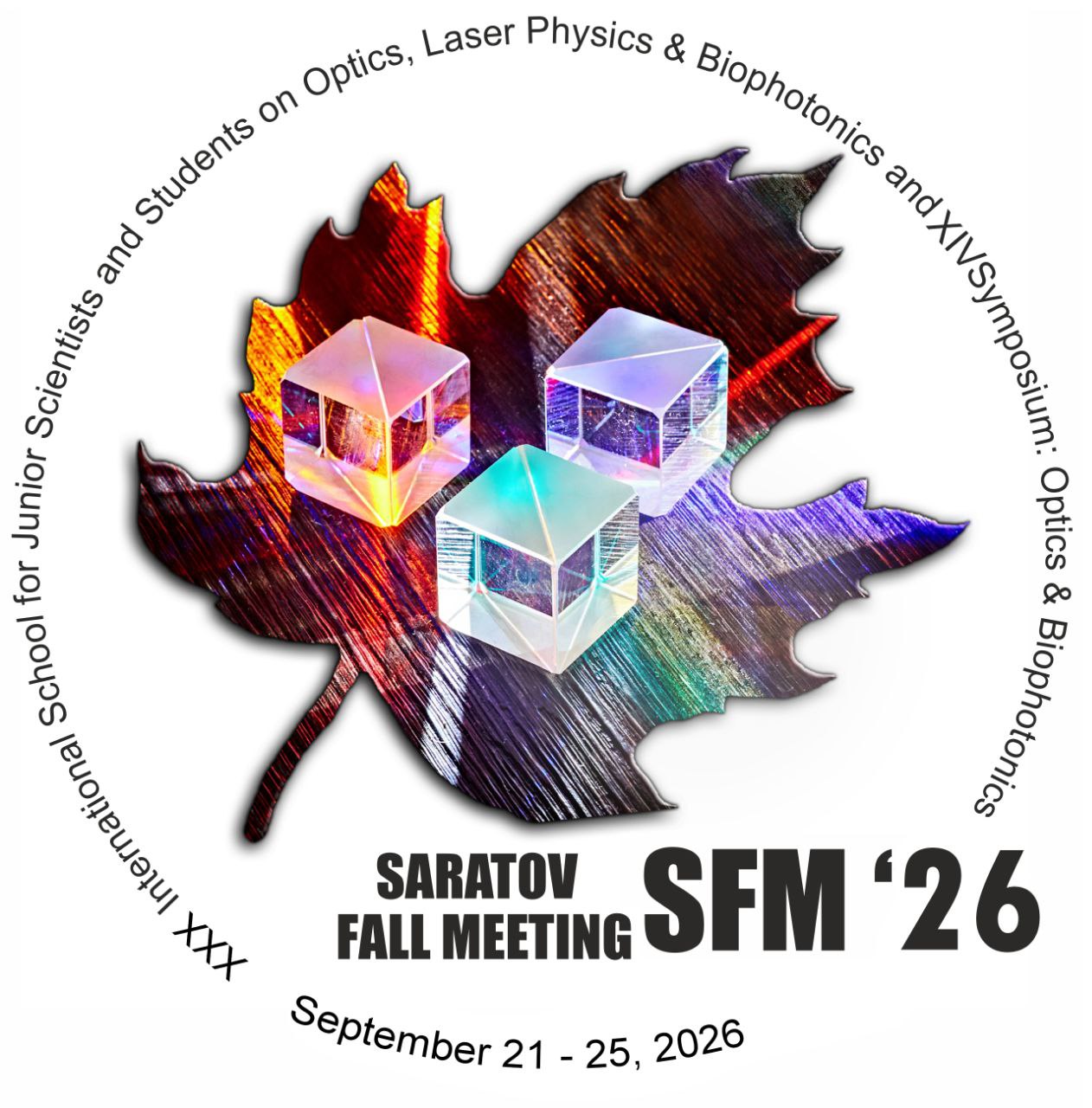The effect of temperature on the luminescent properties of europium complexes with N-heterocyclic ligands
Kharitonov D.A., Kharcheva A.V., Borisova N.E., Farat O.K., Patsaeva S.V.
Abstract
The study of rare-earth element complexes is a task of particular importance as they have a wide field of applications due to their outstanding properties. For example, they may be used as a molecular thermometer, a chemical sensor, or for OLED components. Changes in external conditions may have a great impact on the luminescent characteristics of rare-earth complexes, so the registration of luminescence spectra under various experimental conditions is crucial. In this work, we measured the absorption, emission and excitation spectra of luminescence in the temperature range from 20 to 60°C. The temperature dependences of the spectral characteristics were obtained, including the luminescence lifetime, the quantum yield of luminescence, the asymmetry coefficient and the number of water molecules in the first coordination sphere of the europium ion. The differences in the behavior of various complexes with increasing temperature were evaluated as well. It was found that the shape of the excitation and emission spectra is mostly temperature independent, whereas the decline of luminescence intensity with temperature increase is observed for all solutions and may be described by the Arrhenius equation and expressed as a linear section on van 't Hoff plot . We assumed that the mechanism of luminescence quenching with increasing temperature in the studied complexes is the reverse energy transfer between the excited level of a rare-earth metal ion and the triplet level of a ligand or a charge-transfer state. The temperature dependencies of the luminescence lifetime, quantum yield, and asymmetry coefficient were also established, as well as the number of water molecules in the first coordination sphere of the europium ion, which was calculated by the empirical formula.
The results have been obtained under support of the RSF grant no. 16-13-10451 and RFBR project no. 18-02-01023.
Speaker
Kharitonov Dmitrii
Lomonosov Moscow State University
Russia
Discussion
Ask question


